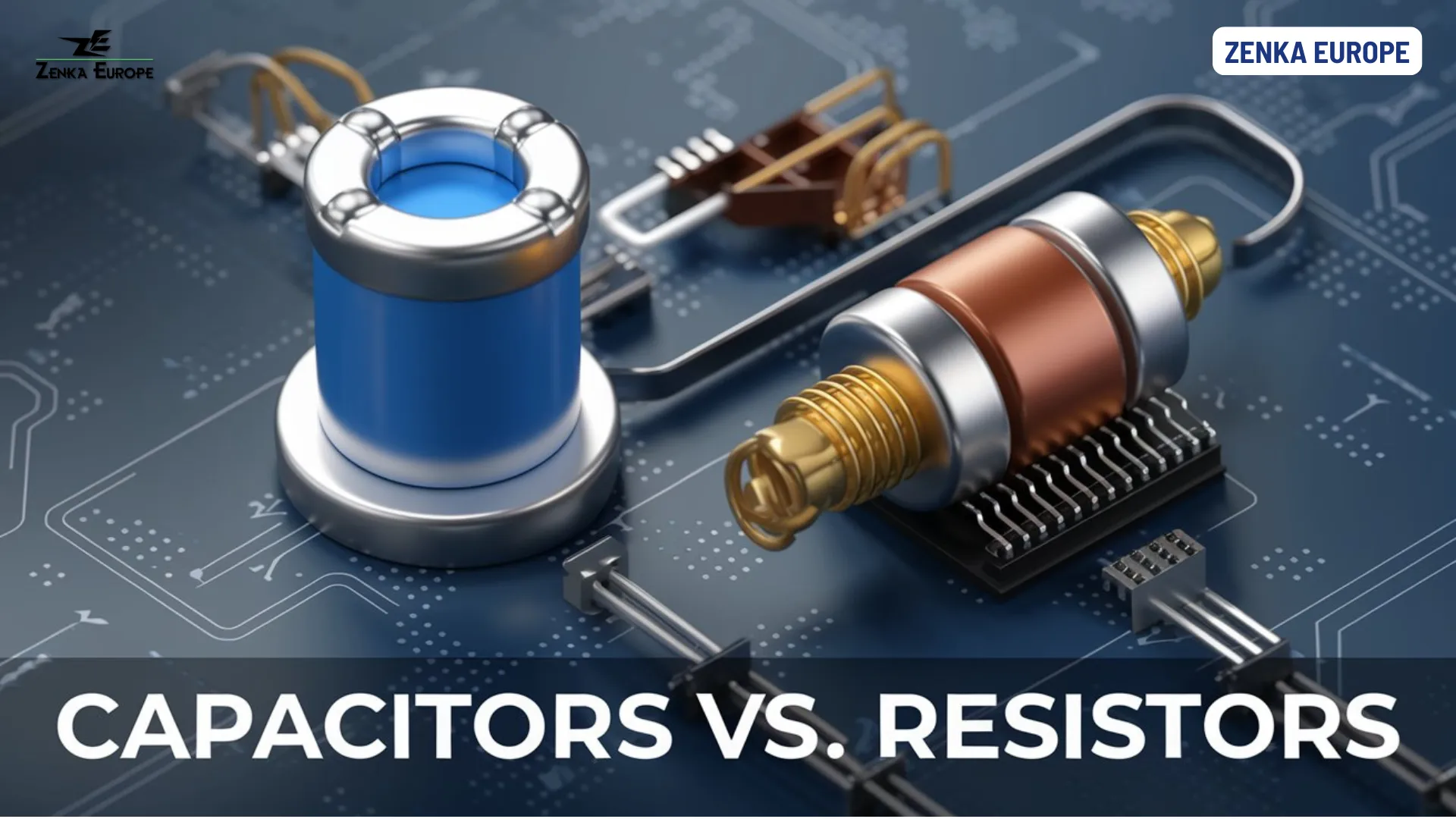
A capacitor is an electrical component that stores energy in an electric field. Unlike a battery, which stores energy chemically, a capacitor temporarily holds energy and releases it when needed. Its ability to store and release energy makes it essential for tasks such as:
In simpler terms, capacitors help keep the power in a circuit stable and smooth, which is crucial for the operation of sensitive electronic devices.
A resistor, on the other hand, is designed to limit the flow of electrical current in a circuit. By converting excess energy into heat, resistors prevent too much current from passing through sensitive components, ensuring the circuit doesn’t overload or cause damage.
Resistors are key in:
In essence, resistors act as traffic controllers for electrical current, ensuring that only the right amount reaches various parts of the circuit.
While both capacitors and resistors play a role in managing the flow of electricity, they do so in completely different ways:
Understanding the differences between these components can significantly improve your approach to designing or troubleshooting circuits. For example:
In the rapidly advancing field of electronics, having a basic understanding of key components like capacitors and resistors can make a big difference. Whether you're an electronics enthusiast, a student, or a professional, knowing how these components work together in a circuit is essential.
This knowledge becomes particularly important when dealing with obsolete components. In today’s complex global supply chain, many critical electronic parts become obsolete or difficult to find. Companies like Zenka Europe specialize in providing hard-to-find and high-quality components to ensure smooth operations in industries ranging from automotive to consumer electronics.
At Zenka Europe, we are committed to delivering top-quality electronic components, including capacitors, resistors, and other passive components. Our team helps businesses navigate challenges in procurement and distribution, ensuring they always have access to the parts they need.
📢 If you're looking for high-quality obsolete components or facing issues with your supply chain, don’t hesitate to contact us at zenkaeurope.com or via email at info@zenkaeurope.com.
Understanding the roles of capacitors and resistors is key to mastering electronics. These components may seem simple, but they are critical to the operation of everything from your smartphone to complex industrial machinery. At Zenka Europe, we aim to demystify these components while ensuring that you have access to the best quality components for your needs.
For more educational content on electronics and updates on the latest in the industry, follow Zenka Europe on social media and stay tuned for future episodes of Circuit Clarity.
1. What is the main difference between a capacitor and a resistor?
A capacitor stores electrical energy temporarily and releases it when needed, while a resistor limits the flow of electrical current by converting excess energy into heat. Capacitors help stabilize voltage, and resistors regulate current flow.
2. How does a capacitor work in a circuit?
A capacitor stores energy in an electric field and releases it to help manage power spikes, stabilize voltage, or filter signals in the circuit.
3. What role does a resistor play in a circuit?
A resistor controls the amount of current flowing through the circuit, preventing damage to sensitive components by converting excess energy into heat. It ensures that the right amount of current reaches each part of the circuit.
4. Can I use a capacitor instead of a resistor?
No, capacitors and resistors have completely different functions. Capacitors store and release energy, while resistors are designed to control current. Using one in place of the other could result in circuit failure or damage to components.
To know more, watch our video : https://www.youtube.com/shorts/81iSe51rwvQ